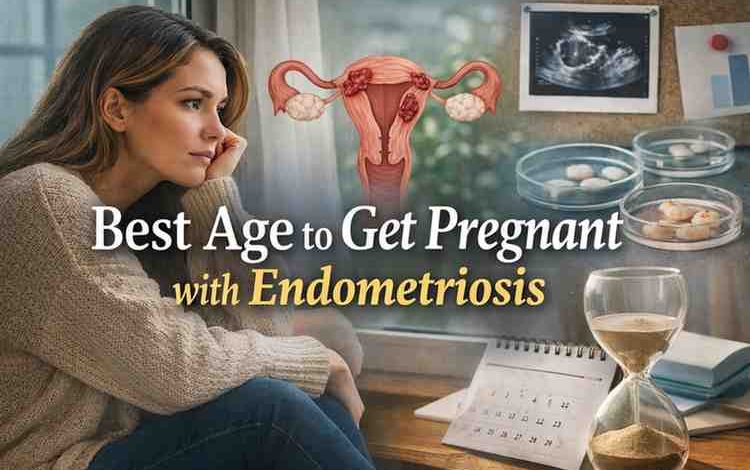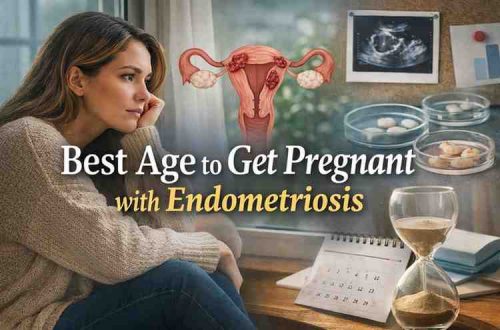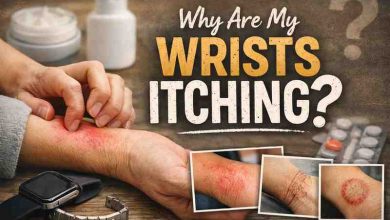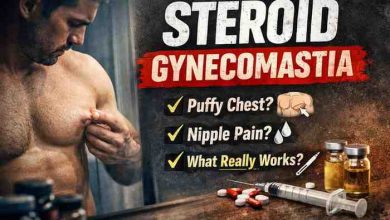

I’ve sat across from too many women who thought they “had time” — and too many who were rushed into panic before they actually needed to be.
The phrase “Best Age to Get Pregnant with Endometriosis” usually shows up in their Google history at 2 a.m. Not because they’re casually planning. But because something feels urgent. Or confusing. Or unfair.
From what I’ve seen, the frustration isn’t just about age. It’s about unpredictability.
One woman in her late 20s assumed she’d be fine because she was “young.” Another at 34 was told she’d waited too long. Both had endometriosis. Both were misled in different ways.
Age matters with endometriosis.
But not in the simplistic way most people think.
Let me walk you through what actually plays out in real life.
First, The Straight Answer (Because I Know You Want It)
From what I’ve seen repeatedly:
For most women with endometriosis, the window between 25–32 tends to offer the best balance of egg quality and manageable disease progression.
But that’s not universal.
Some conceive easily at 34.
Some struggle at 27.
Stage doesn’t always predict outcome.
Symptoms don’t always reflect severity.
This is where it gets messy.
Why Age Matters More with Endometriosis Than Without It
Here’s what surprised me after watching so many cases unfold:
It’s not just declining egg quality over time. It’s the double pressure of:
-
Natural fertility decline with age
-
Possible progression of endometriosis
-
Inflammation impacting egg quality and implantation
-
Scar tissue interfering with anatomy
So instead of one clock, you’re often working against two.
Most people underestimate that.
And doctors sometimes oversimplify it.
What I’ve Seen Across Different Age Groups
Early 20s (20–24)
This group often assumes: “I’m young. I’ll deal with this later.”
From what I’ve seen, many in this age range:
-
Delay treatment
-
Ignore symptoms
-
Stay on long-term hormonal suppression
-
Don’t assess ovarian reserve early
It’s not wrong to wait. But here’s the part people miss:
Endometriosis doesn’t always stay mild.
By late 20s, some women discover:
-
Lower AMH than expected
-
Ovarian cysts (endometriomas)
-
Tubal issues they didn’t know were developing
Not everyone. But enough that I don’t brush it off anymore.
Mid to Late 20s (25–29)
This is where I’ve seen the smoothest outcomes overall.
Why?
-
Egg quality is still strong
-
Ovarian reserve is typically stable
-
Disease progression hasn’t compounded as much
When women in this range try within 6–12 months of planning, outcomes are often better — especially if they’ve already:
-
Managed inflammation
-
Monitored ovarian reserve
-
Treated significant lesions surgically when necessary
That said…
Almost everyone I’ve seen struggle in this age group made one common mistake:
They assumed being under 30 meant trying naturally for years before testing.
With endometriosis, I usually see smarter results when evaluation happens earlier — not after 18 months of frustration.
Early 30s (30–34)
This is the emotional pressure zone.
Most people I’ve worked with start feeling:
-
Panic
-
Regret for waiting
-
Urgency from OBs
-
Family pressure
Here’s what actually happens in practice:
Some conceive naturally within months.
Others move to IUI or IVF sooner — and that earlier intervention often makes the difference.
This honestly surprised me after watching so many people try “naturally” for too long.
With endometriosis, time spent in uncertainty can sometimes cost more than strategic early action.
If someone at 32 asks me what I’ve seen work best, I usually say: Get baseline testing immediately. Don’t wait the standard one year.
AMH. AFC. Tubes. Partner testing.
Clarity reduces panic.
35 and Beyond
Now we’re dealing with:
-
Age-related egg decline
-
Possible long-standing inflammation
-
Higher IVF reliance
Does that mean it’s hopeless?
No.
But from what I’ve seen, strategy becomes critical.
Women 35+ with endometriosis who succeed often:
-
Move to assisted reproductive options faster
-
Avoid repeated low-yield surgeries
-
Work closely with reproductive endocrinologists
-
Focus on embryo quality over repeated natural attempts
The ones who struggle most?
They delay intervention out of fear.
Or chase miracle protocols online.
So What Is the Best Age to Get Pregnant with Endometriosis?
If we’re speaking broadly and honestly:
25–32 tends to offer the most favorable biological balance.
But the better question is: What’s your ovarian reserve doing right now?
Because I’ve seen:
-
A 29-year-old with severely reduced reserve
-
A 36-year-old with strong numbers and quick IVF success
Chronological age matters.
Ovarian biology matters more.
Common Mistakes I See Again and Again
Most people I’ve worked with mess this up at first:
-
Waiting a full year to test fertility
-
Assuming mild symptoms = mild disease
-
Repeating surgeries that damage ovarian reserve
-
Ignoring partner fertility factors
-
Delaying IVF when clearly indicated
The emotional pattern is predictable:
Hope → Delay → Rising anxiety → Panic → Rushed decisions
That cycle is brutal.
How Long Does It Usually Take?
Short answer (real-world observation):
-
Under 30 with mild disease: 6–12 months is common
-
30–34: often 6 months natural attempts before escalation
-
35+: many move to IVF within 3–6 months
But here’s the truth no one likes:
Endometriosis fertility journeys are rarely linear.
Some conceive in two months.
Some need two IVF cycles.
Some pivot to egg freezing first.
Patience looks different here.
What Actually Improves Odds (From What I’ve Seen Work)
Not theory. Just patterns.
What consistently helps:
-
Early fertility testing (before long delays)
-
Treating large endometriomas carefully
-
Reducing inflammation pre-conception
-
Managing stress realistically (not obsessively)
-
Working with specialists familiar with endometriosis
What sounds good but often fails:
-
Endless supplement stacking
-
Repeated “just try naturally” advice past 35
-
Ignoring painful cycles while trying
-
Avoiding reproductive endocrinologists out of fear
FAQ (Quick Answers for What You’re Probably Wondering)
Is 30 too late to get pregnant with endometriosis?
No. Many conceive in early 30s. Just test early and avoid passive waiting.
Is IVF always required?
No. But intervention tends to happen sooner than in women without endometriosis.
Does stage determine fertility outcome?
Not reliably. I’ve seen mild stage struggle and advanced stage succeed.
Should I rush pregnancy because of endometriosis?
Rush? No.
Plan strategically? Yes.
Objections I Hear All the Time
“I don’t feel ready emotionally.”
That’s real. But freezing eggs earlier is sometimes a middle path.
“My doctor said I’m young, so don’t worry.”
Youth helps. It doesn’t override inflammatory biology.
“I’m scared of IVF.”
Almost everyone is at first. The fear is usually bigger than the process.
Reality Check (Because I Don’t Want to Sugarcoat This)
This approach isn’t for:
-
Someone who wants to “see what happens” for 2–3 years
-
Someone unwilling to get testing data
-
Someone expecting guarantees
Endometriosis adds unpredictability.
Even at the best age.
Even with perfect labs.
That doesn’t mean failure. It means variability.
Practical Takeaways
If you’re 25–32:
-
Don’t panic.
-
Do test early.
-
Don’t delay unnecessarily if numbers are borderline.
If you’re 30–34:
-
Get full fertility workup immediately.
-
Try naturally briefly if labs support it.
-
Escalate strategically.
If you’re 35+:
-
Move quickly.
-
Consider IVF sooner.
-
Avoid repeated ovarian surgeries unless clearly necessary.
Emotionally?
Expect waves.
Hope. Doubt. Relief. Frustration.
Small wins matter. A good scan. A strong embryo. A pain-free month.
Those moments carry people further than big promises.
I’ve watched enough women navigate this to know one thing:
The “best age to get pregnant with endometriosis” isn’t just a number. It’s a mix of biology, timing, information, and emotional readiness.
So no — this isn’t magic. And there’s no perfect moment.
But I’ve seen what happens when someone shifts from passive waiting to informed action. The panic softens. The path gets clearer. And even when the journey isn’t simple, it stops feeling helpless.
Sometimes that shift alone changes everything.



